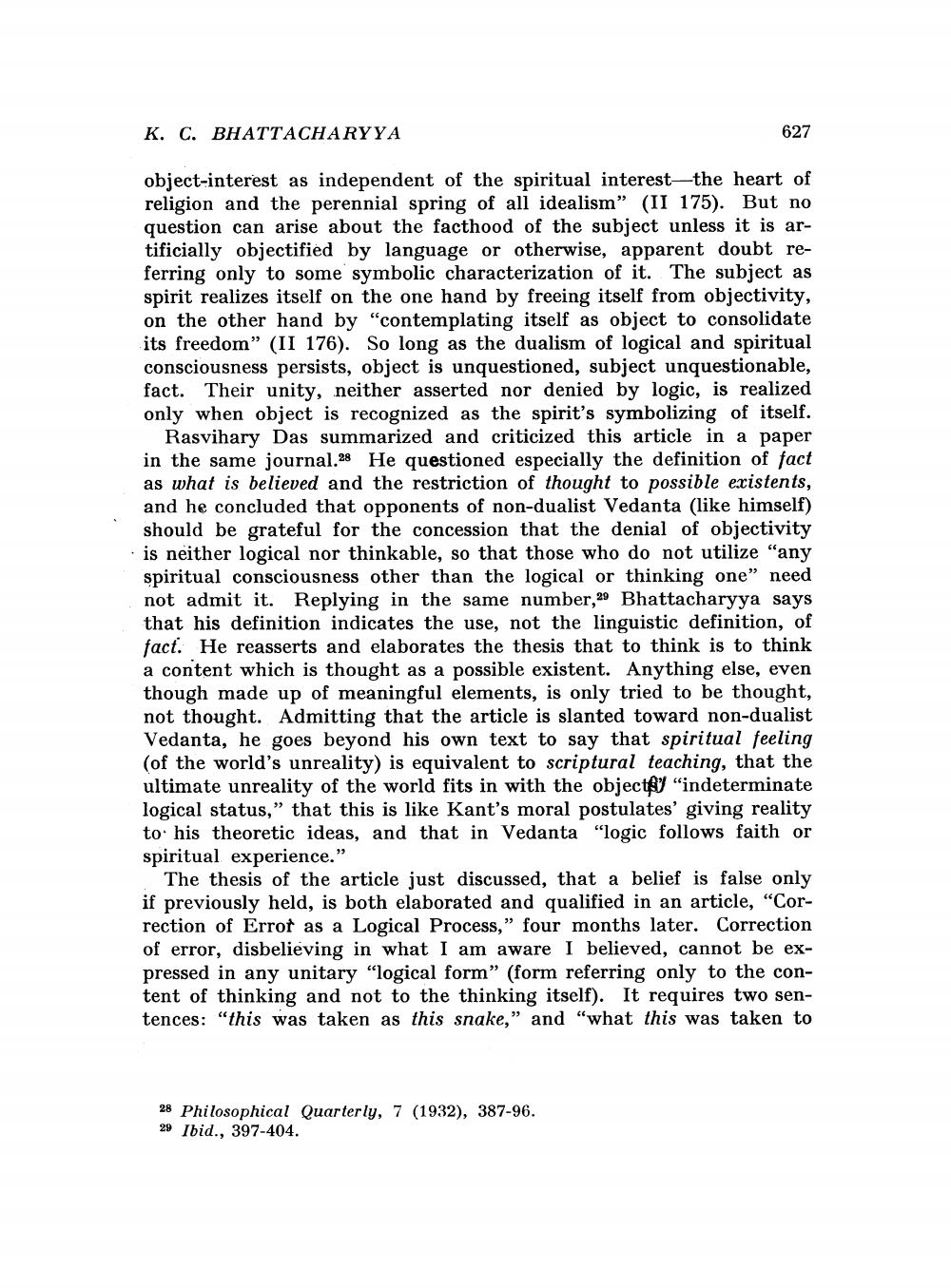________________
K. C. BHATTACHARYYA
627
object-interest as independent of the spiritual interest—the heart of religion and the perennial spring of all idealism" (II 175). But no question can arise about the facthood of the subject unless it is artificially objectified by language or otherwise, apparent doubt referring only to some symbolic characterization of it. The subject as spirit realizes itself on the one hand by freeing itself from objectivity, on the other hand by "contemplating itself as object to consolidate its freedom" (II 176). So long as the dualism of logical and spiritual consciousness persists, object is unquestioned, subject unquestionable, fact. Their unity, neither asserted nor denied by logic, is realized only when object is recognized as the spirit's symbolizing of itself.
Rasvihary Das summarized and criticized this article in a paper in the same journal.28 He questioned especially the definition of fact as what is believed and the restriction of thought to possible existents, and he concluded that opponents of non-dualist Vedanta (like himself) should be grateful for the concession that the denial of objectivity is neither logical nor thinkable, so that those who do not utilize "any spiritual consciousness other than the logical or thinking one" need not admit it. Replying in the same number,29 Bhattacharyya says that his definition indicates the use, not the linguistic definition, of fact. He reasserts and elaborates the thesis that to think is to think a content which is thought as a possible existent. Anything else, even though made up of meaningful elements, is only tried to be thought, not thought. Admitting that the article is slanted toward non-dualist Vedanta, he goes beyond his own text to say that spiritual feeling (of the world's unreality) is equivalent to scriptural teaching, that the ultimate unreality of the world fits in with the objectfly "indeterminate logical status," that this is like Kant's moral postulates' giving reality to his theoretic ideas, and that in Vedanta "logic follows faith or spiritual experience."
The thesis of the article just discussed, that a belief is false only if previously held, is both elaborated and qualified in an article, "Correction of Error as a Logical Process," four months later. Correction of error, disbelieving in what I am aware I believed, cannot be expressed in any unitary "logical form” (form referring only to the content of thinking and not to the thinking itself). It requires two sentences: “this was taken as this snake," and "what this was taken to
28 Philosophical Quarterly, 7 (1932), 387-96. 29 Ibid., 397-404.




